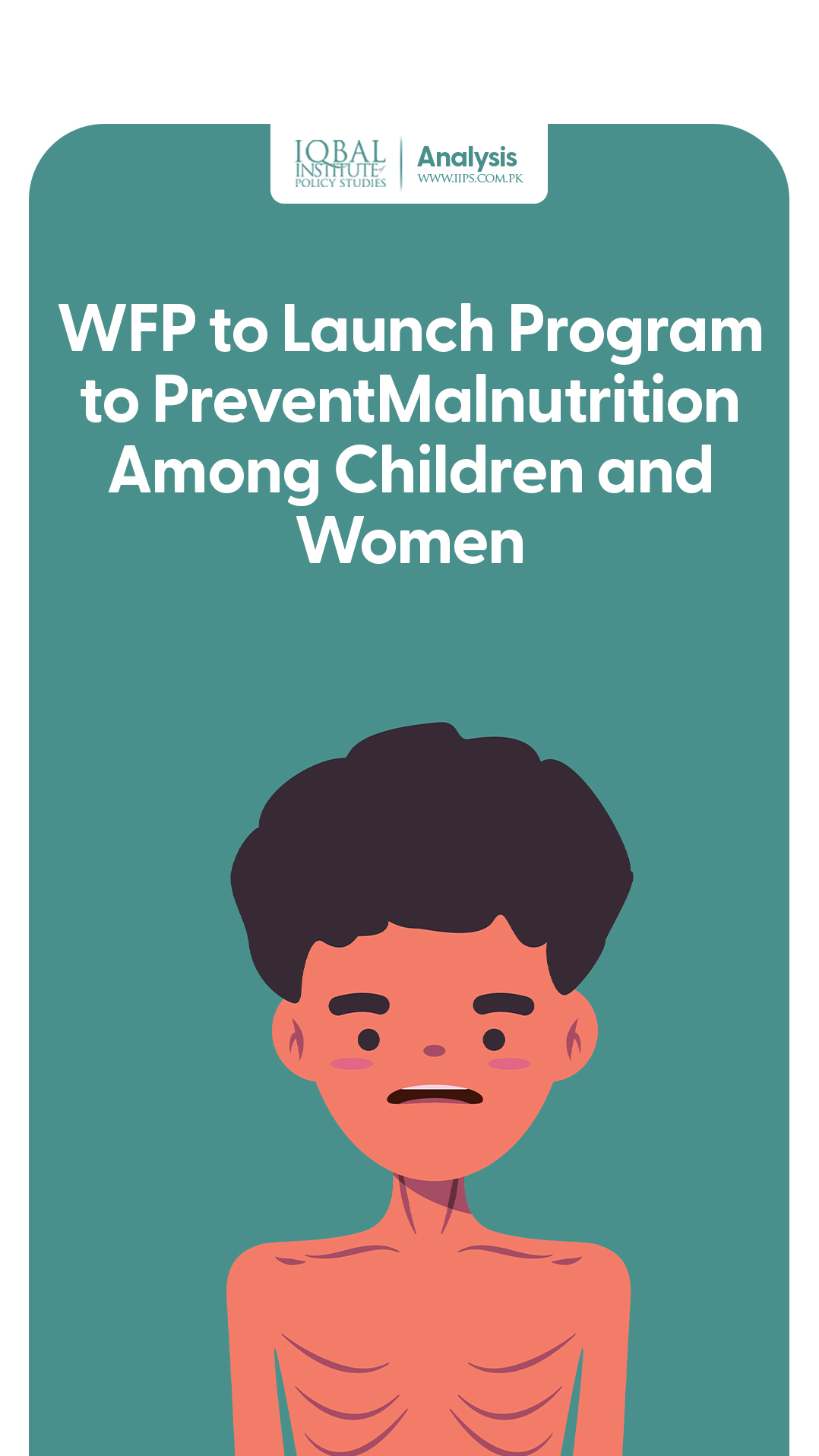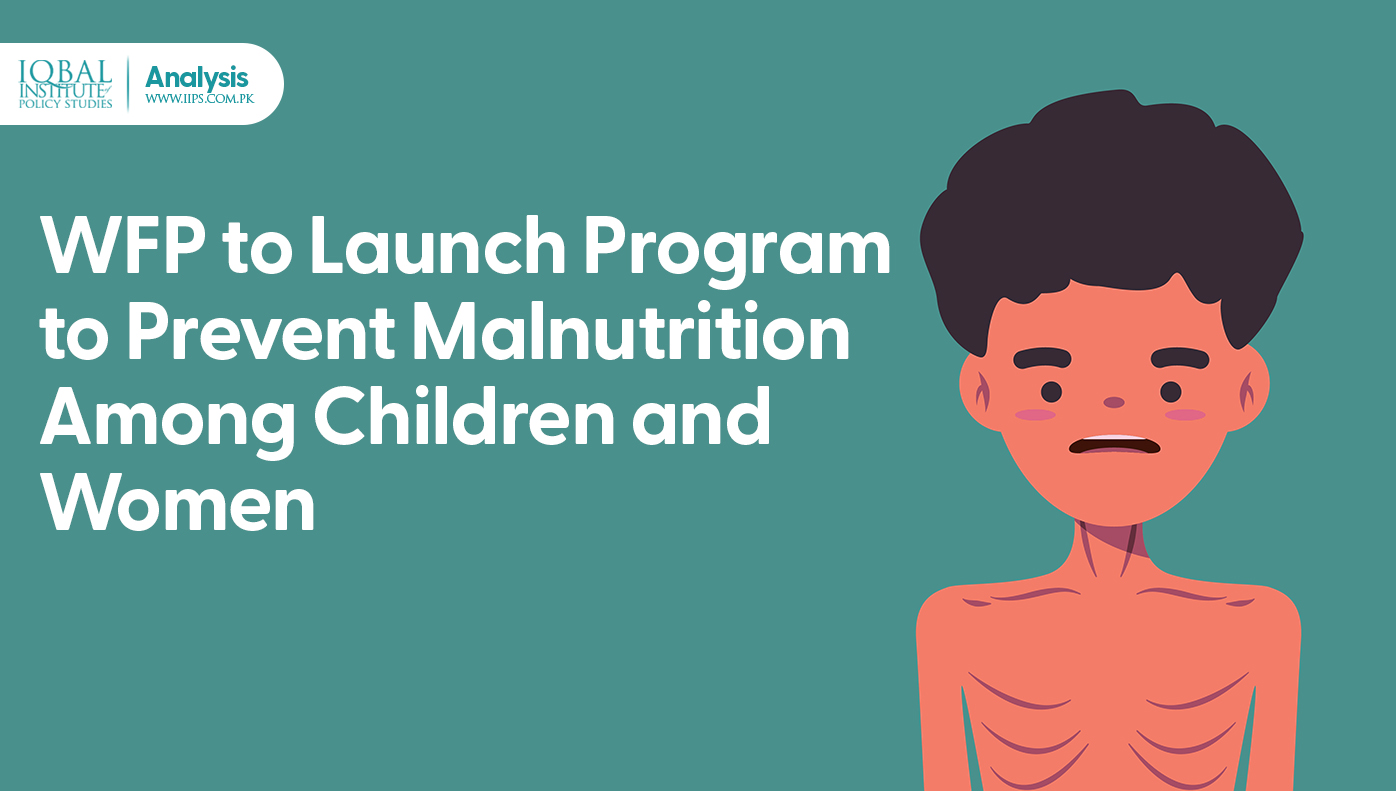The SDGs are an urgent call to shift towards a more sustainable path of socio-economic development. Pakistan has pledged to achieve these goals by 2030. Over the years, the global prevalence of hunger has increased, and Pakistan’s main target is to reduce malnutrition in the country. For this purpose, Pakistan has made many efforts like giving tax exemptions on food, fortifying food delivery and equipment, starting soup kitchens to fight hunger etc.
Despite many efforts, malnutrition and stunting are rising in Pakistan. Currently, 38% of children in Pakistan aged five years and under are stunted (Express Tribune, 2022). A significant reason is the limited access to economic opportunities by the population’s poorest and most vulnerable group.
An average Pakistani household spends 50.8% of its monthly income on food, making them particularly vulnerable to shocks and inflation. Furthermore, the situation is exacerbated by climate change and population displacements.
The World Food Programme (WFP) is aligned with Pakistan’s Vision 2025. It supports government-led efforts to improve food and nutrition security among vulnerable communities in response to the effects of recurring human and climatic events.
WFP has launched several programs to reduce food insecurity and stunting in Pakistan, like a multi-donor-funded resilience-building programme in Balochistan and Khyber Pakhtunkhwa (KP) to provide specialised nutritious food to the vulnerable ones.
Recently, the WFP launched its Community-Based Management of Acute Malnutrition Programme (CMAM) in Pakistan. The program aims to prevent malnutrition in children under five years and pregnant and lactating women in 14 vulnerable districts of Khyber Pakhtunkhwa (KP) and Azad Jammu & Kashmir (AJK).
WFP is working hand in hand with the Government of Pakistan to build capacity at national and provincial levels to develop multi-sectoral policies and strategies in food security and provide expertise on disaster risk reduction, health and emergency preparedness and response.



Leave a Reply